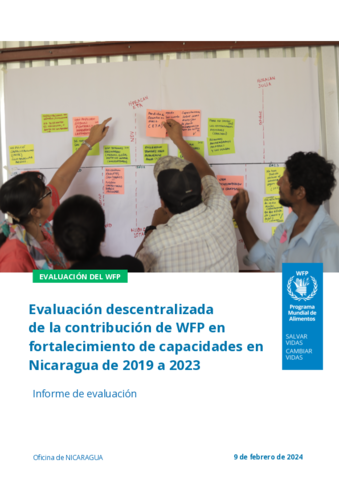
Based on a used-focus approach, the evaluation answered four questions related to the design of the interventions, their implementation and their results. Gender mainstreaming was integrated throughout the evaluation process, aligning with human rights and equity considerations.
Key evaluation findings include:
- WFP's capacity strengthening efforts align with national policies and plans, garnering recognition as a strategic partner among governmental and non-governmental stakeholders.
- Despite demonstrating effectiveness, funding constraints pose challenges to addressing all identified needs, risking the sustainability of achieved results.
- While contributing to gender equality and women's empowerment, there remains room for improvement, particularly in supporting smallholder female farmers.
Lessons learned from the evaluation underscore the importance of collaborative partnerships to enhance ownership and likelihood of sustainability, qualitative data collection for better understanding of added value, and the strategic integration of gender considerations into programming.
The evaluation produced three recommendations:
1. Transition from a largely technical approach to a more strategic one, adapted to the context.
2. Adjust the monitoring system to adapt it to the needs of supporting evidence generation and decision making
3. Ensure that a strong gender focus is maintained in the CSP and WFP action, in the absence of strategic outcome.
